
The United Nations Security Council (UNSC) is one of the six principal organs of the United Nations (UN) and is charged with ensuring international peace and security, recommending the admission of new UN members to the General Assembly, and approving any changes to the UN Charter. Its powers as outlined in the United Nations Charter include establishing peacekeeping operations, enacting international sanctions, and authorizing military action. The UNSC is the only UN body with authority to issue resolutions that are binding on member states.

The secretary-general of the United Nations is the chief administrative officer of the United Nations and head of the United Nations Secretariat, one of the six principal organs of the United Nations.
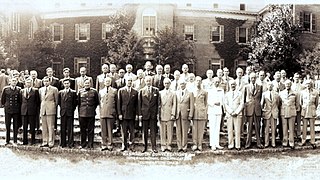
The Dumbarton Oaks Conference, or, more formally, the Washington Conversations on International Peace and Security Organization, was an international conference at which proposals for the establishment of a "general international organization", which was to become the United Nations, were formulated and negotiated. The conference was led by the Four Policemen – the United States, the United Kingdom, the Soviet Union, and China. It was held at the Dumbarton Oaks estate in Washington, D.C., from August 21, 1944, to October 7, 1944.

Boutros Boutros-Ghali was an Egyptian politician and diplomat who served as the sixth Secretary-General of the United Nations from 1992 to 1996. Prior to his appointment as secretary-general, Boutros-Ghali was the acting Minister of Foreign Affairs of Egypt between 1977 and 1979. He oversaw the United Nations over a period coinciding with several world crises, including the breakup of Yugoslavia and the Rwandan genocide.
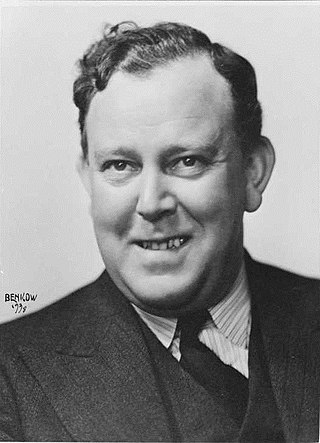
Trygve Halvdan Lie was a Norwegian politician, labour leader, government official and author. He served as Norwegian foreign minister during the critical years of the Norwegian government in exile in London from 1940 to 1945. From 1946 to 1952 he was the first Secretary-General of the United Nations.

The Soviet Union was a charter member of the United Nations and one of five permanent members of the Security Council. Following the dissolution of the Soviet Union in 1991, its UN seat was transferred to the Russian Federation, one of the many successor states of the USSR.

The United Nations Security Council veto power is the power of the five permanent members of the UN Security Council to veto any "substantive" resolution. They also happen to be the nuclear-weapon states (NWS) under the terms of the Treaty on the Non-Proliferation of Nuclear Weapons. However, a permanent member's abstention or absence does not prevent a draft resolution from being adopted. This veto power does not apply to "procedural" votes, as determined by the permanent members themselves. A permanent member can also block the selection of a Secretary-General, although a formal veto is unnecessary since the vote is taken behind closed doors.

Salim Ahmed Salim is a Tanzanian politician and diplomat who has worked in the international diplomatic arena since the early 1960s. He served as prime minister for one year 1984–1985.
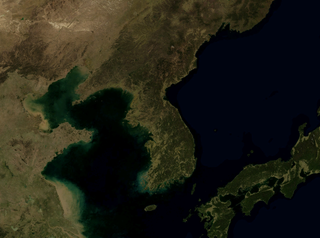
Resolution 82 was adopted by the United Nations Security Council (UNSC) on 25 June 1950. It condemned the "armed attack on the Republic of Korea by forces from North Korea", while calling for "the immediate cessation of hostilities" and for "the authorities in North Korea to withdraw forthwith their armed forces to the 38th parallel". The measure was adopted with 9 voting for, none opposed, and one abstention by the Soviet Union, who was boycotting the UN at the time for its recognition of the Republic of China as China's representative to the organization.
Chapter V of the United Nations Charter contains provisions establishing the United Nations Security Council.
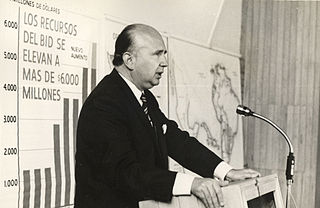
Felipe Herrera Lane was a Chilean economist, lawyer, academic and political socialist. He served as the first president of the Inter-American Development Bank, where he gained a reputation as a "developmentalist."

United Nations Security Council resolution 1090, adopted without a vote at a closed meeting on 13 December 1996, having considered the question of the recommendation for the appointment of the Secretary-General of the United Nations, the Council recommended to the General Assembly that Mr. Kofi Annan be appointed for a term of office from 1 January 1997, to 31 December 2001.
United Nations Secretary-General selection is the process of selecting the next secretary-general of the United Nations. To be selected as secretary-general, a candidate must receive the votes of at least nine members of the United Nations Security Council, with no vetoes from permanent members. The secretary-general is then appointed by a majority vote of the United Nations General Assembly.

A United Nations Secretary-General selection was held in 1996 at the end of Boutros Boutros-Ghali's first term. Boutros-Ghali ran unopposed for a second term and received the support of 14 of the 15 members of the United Nations Security Council. However, the United States vetoed his re-selection and eventually forced him to withdraw his candidacy.

A United Nations Secretary-General selection was held in 1991 to replace Javier Pérez de Cuéllar, whose second term would end on 31 December 1991. Boutros Boutros-Ghali of Egypt was selected for a term ending on 31 December 1996, becoming the first Secretary-General from Africa.
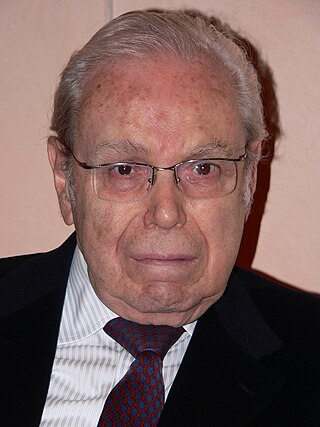
A United Nations Secretary-General selection was held in 1981. Kurt Waldheim ran for an unprecedented third full term as Secretary-General, losing to Salim Ahmed Salim by one vote. However, the selection deadlocked through 16 rounds of voting as China vetoed Waldheim and the United States voted against Salim. The Security Council finally settled on a dark horse candidate who stayed home and did not campaign. Javier Pérez de Cuéllar was selected for a term beginning on 1 January 1982, becoming the first Secretary-General from Latin America.

A United Nations Secretary-General selection was held in 1971 to succeed U Thant, who was stepping down after two full terms. Three candidates received enough votes in the Security Council to be selected Secretary-General: Carlos Ortiz de Rozas of Argentina, Kurt Waldheim of Austria, and Max Jakobson of Finland. However, all of the frontrunners were vetoed in the first two rounds of voting. In the third round, Waldheim accidentally escaped a triple-veto when three permanent members failed to coordinate their votes and all abstained. As a result, Kurt Waldheim was selected Secretary-General of the United Nations for a term starting 1 January 1972.
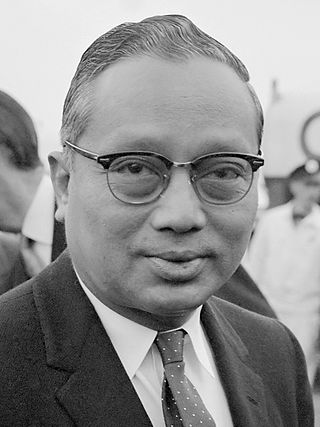
A United Nations Secretary-General selection was held in 1961 to replace Dag Hammarskjöld after he was killed in a plane crash. After initial Soviet attempts to replace the secretary-general with a troika, it was agreed that an acting secretary-general would be appointed for the remainder of Hammarskjöld's term. Within two weeks, U Thant of Burma emerged as the only candidate who was acceptable to both the Soviet Union and the United States. However, the superpowers spent another four weeks arguing over the number of assistant secretaries-general, before finally resolving their dispute by allowing Thant to decide for himself. Thant was then voted in unanimously for a term ending on 10 April 1963.

A United Nations Secretary-General selection was held in 1953 after Trygve Lie announced his intention of resigning. Lie had been at odds with the Soviet Union since the outbreak of the Korean War, and the negotiations for an armistice offered the opportunity for a new Secretary-General to turn the page. The British delegation dragged out the selection process as they campaigned for Lester Pearson of Canada, but he was vetoed by the Soviet Union. Other candidates fell short of a majority in the Security Council. After two weeks of deadlock, France proposed Dag Hammarskjöld of Sweden as a dark horse candidate. Hammarskjöld was acceptable to both superpowers and was selected Secretary-General for a 5-year term.

The United Nations Secretary-General selection of 1946 took place at the opening session of the United Nations in London. The General Assembly first voted on the membership of the Security Council, which then selected the first Secretary-General of the United Nations. The United States and the United Kingdom supported Lester B. Pearson of Canada for Secretary-General, but the Soviet Union opposed Pearson since the permanent headquarters of the United Nations would be in North America. The Security Council compromised on Trygve Lie of Norway, who had lost the election for President of the General Assembly to Paul-Henri Spaak of Belgium.
























